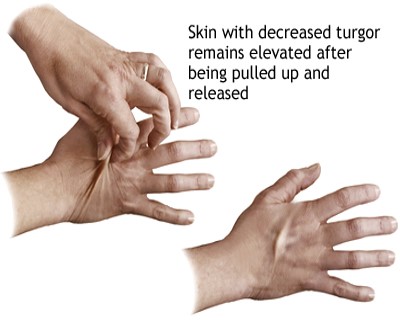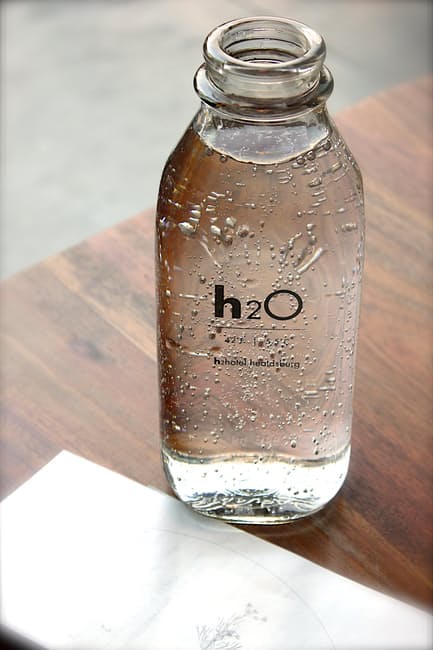Most people are dehydrated. We’ve tested thousands of people for hydration status in the clinic (using a device that uses bioelectric impedance analysis (BIA)) and have found that less than 1% of people are properly hydrated when they first walk through our door.
Since most people don’t have access to a BIA, how do you know if you are dehydrated or not? Here’s a simple test called skin turgor.
What you do is place your hand palm down on the table; use the other hand to pull up the skin on the back of the hand that is palm down, hold it for a few seconds, and then release.

If the skin does not return to normal almost immediately, you are dehydrated. Even if the skin does go back to normal pretty quickly, you may still be mildly dehydrated.
How to Improve Hydration
We’ve all heard that we need to drink eight 8-ounce glasses of water per day, and that certainly gets us in the right ballpark. To get a more accurate measurement, use the following formula: drink 1/2 your body weight in ounces of water every day. For example, a 200 lb person should drink about 100 ounces of water daily.
However, as important as how much water you should drink is when and how much you drink at one time. The cells in your body can only absorb about 2-4 ounces of water every 20-30 minutes under normal circumstances. That means if you drink more water than that, you will be running to the bathroom about 30 minutes later and not getting hydrated.
So the real trick is to drink less water more often; again, for most of us, that’s 2-4 ounces every 20-30 minutes while we are awake (most people will find that they need to stop drinking 2-3 hours before bed so they aren’t up all night going to the bathroom).
It is very difficult to drink too much water (unless you are sweating profusely for long periods of time; in these cases you will likely need electrolyte replacement, like Endura) so drink up. It can take about 3 weeks for your body to get used to increased water intake, so use those extra trips to the bathroom as a good excuse to exercise and do some deep breathing.
For more information, see The Dehydration Epidemic


